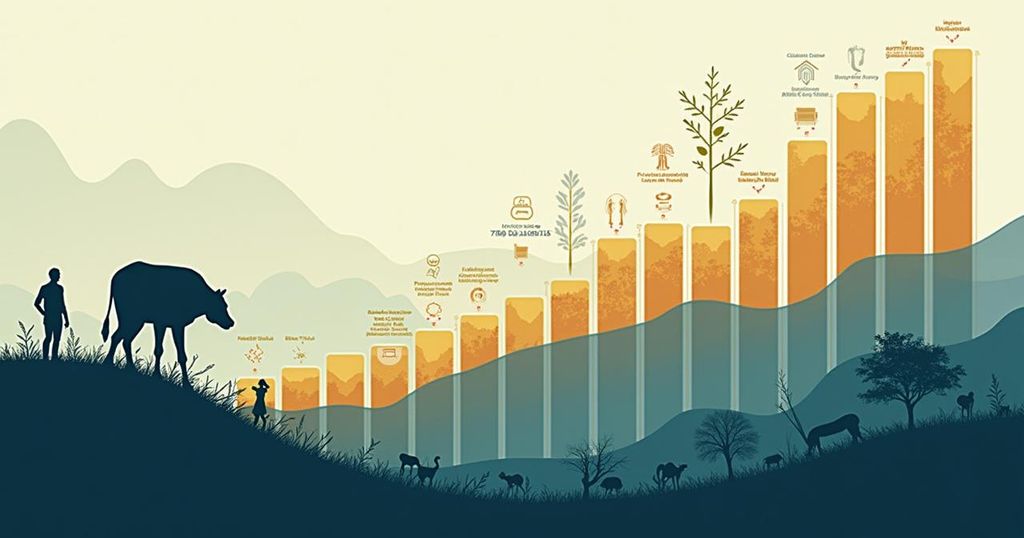Analyzing the Environmental Impact of Government Subsidies for Sustainability
A recent study published in Science argues for caution in implementing government subsidies for environmental sustainability. The authors highlight unintended negative consequences such as overfishing and increased fossil fuel extraction, urging for defined end dates for subsidies and a shift towards promoting public transport over electric vehicles. The essay emphasizes the persistence of harmful “zombie policies” and advocates for economic approaches that prioritize the taxation of detrimental activities.
Recent research has underscored the need for caution regarding government subsidies aimed at promoting environmentally sustainable practices. A team, including an academic from UC Santa Cruz, has articulated the complexity and potential detriments of such subsidies in their essay titled “A Cautious Approach to Subsidies for Environmental Sustainability,” published in the journal Science. The authors posit that subsidies, while ostensibly beneficial, can inadvertently exacerbate existing market pressures, resulting in unintended negative consequences that undermine their purpose and effectiveness. The essay emphasizes the dual nature of subsidies as they can accelerate the transition to renewable energy sources necessary to combat climate change, but simultaneously contribute to widespread issues such as overfishing and increased fossil fuel extraction. Malin Pinsky, an associate professor of ecology and evolutionary biology at UC Santa Cruz and a co-author of the piece, stated, “Subsidies are a double-edged sword: They are speeding renewable energy to stop climate change, and they are also causing massive overfishing and more fossil-fuel extraction than we need.” Lead author Kathleen Segerson, a distinguished professor of economics at the University of Connecticut, and her co-authors, a diverse assembly of experts from various scientific domains, advocate for clearly defined end dates for subsidies, when they are deemed necessary. They highlight the political appeal of subsidies which are often regarded as easier than legislative measures, thereby influencing policies. The authors delve into the implications of seemingly benevolent subsidies, such as those for electric vehicles (EVs), which may inadvertently encourage increased vehicle usage and compound greenhouse gas emissions rather than mitigate them. They suggest that reallocating such subsidies towards enhancing public transportation infrastructure could yield superior environmental benefits. Furthermore, the discussion references “zombie policies,” or long-standing subsidies that contribute substantially to environmental degradation. Evidence shows that U.S. agricultural subsidies are responsible for considerable nitrogen pollution and global deforestation. Despite global commitments to phase out inefficient fossil fuel subsidies, significant amounts continue to persist due to strong corporate lobbying efforts, as highlighted by the authors’ observation that there were approximately $1.3 trillion in such subsidies globally in 2022. In conclusion, the authors propose that economic strategies that impose taxes on harmful activities, such as carbon taxes, may offer a more effective solution, despite their challenging acceptance among policymakers. They call for a collaborative approach that integrates social science with biological research to achieve sustainable practices and foster a healthier environment for forthcoming generations. Pinsky remarked, “Maintaining our quality of life requires a tight integration between social science and biology.” This investigation sheds light on the intricate dynamics of subsidies in environmental policy and the critical need for evidenced-based approaches to ensure both sustainability and economic efficiency.
The article discusses the complexities surrounding government subsidies designed to promote environmentally friendly initiatives. While these subsidies are intended to encourage sustainable practices, research indicates that they can lead to unintended adverse outcomes, such as increased environmental harm. This discourse is crucial in understanding the balance between supporting green technologies and avoiding perpetuation of harmful economic activities.
In summary, the research illustrates the complexities of government subsidies for environmental sustainability, revealing both their potential benefits and inherent risks. The authors advocate for cautious implementation of subsidies with defined durations and greater emphasis on economic strategies that penalize harmful practices, fostering a holistic approach to environmental stewardship.
Original Source: news.ucsc.edu




Post Comment